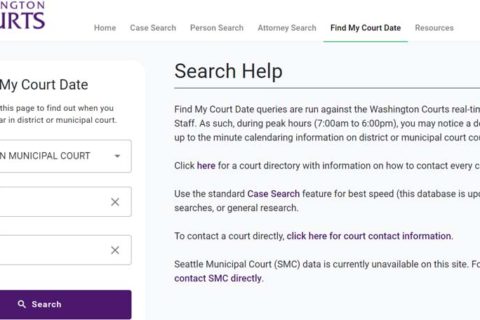Prior to the detention of an offender for a particular case, the process takes a very long time until the court determines how long an offender is sentenced. One of the criminal processes to perform is an Arraignment. This process is held after the filling of an indictment or direct complaint.
Of course, there’s a certain time how long this process takes. It’s important to know how long the Arraignment takes after indictment, since this process will inform the defendant about the exact charges. If you are looking for information on how long arraignment happens, you can dive into our post below!

How Long Does Arraignment Happen After Indictment?
After the filling of an indictment or direct complaint, an arraignment is held within 10 days, unless the defendant has not been arrested or has negotiated a plea agreement at the status conference. It should take place before a Magistrate Judge.
During an Arraignment, the accused that is now called defendant is read the charges against him or her and also advised of her or his rights. In this process, the defendant can also submit a plea of guilty or not guilty.
If needed, a trial date will be chosen and a schedule set for motion hearings that may include in-court arguments as to suppression of evidence, and many more. It’s important to note, the Federal Speedy Trial Act reveals the defendant has right to trial within 70 days from his or her arraignment in the U.S. District Court.
What is the Purpose of Arraignment?
There are several purposes of the arraignment hearings, including:
- The defendant will be informed of the exact charges against him/ her.
- The defendant will be advised that he/she must have an attorney. If he/she cannot hire an attorney, one will be provided at public expense.
- The defendant will be required to enter a plea to the charges.
- A pretrial conference and a trial date are set.
In this case, the defendants are entitled to a speedy trial. A trial date here should be set within 120 days from the initial appearance if the defendant remains in custody. The defendants who are released from custody on bail or on their own recognizance should receive a trial date within 150 days from initial appearance. Well, the trial probably happens later than those time frames in extraordinary circumstances.
If the defendants intend to against the charges that are presented at the preliminary hearing, the arraignment is known as a not guilty arraignment. If a defendant intends to plead guilty, the preliminary hearing will be waived and a guilty arrangement will be scheduled in Superior Court.
The defendant can either plead ‘straight to the charges’ or submit to a plea agreement. After accepting the plea, the court will adjust a set for sentencing. The court can issue a bench warrant for the defendant’s arrest if the defendant who is not being held in custody fails to appear at any court hearing.
Read also: Can Charges Be Dropped After Indictment?
What Happens at Arraignment?
How the courts conduct arraignments and what occurs will vary with each state’s laws and its state constitution. During an arraignment, there are two things happen, including:
1. Advise Defendant of Constitutional Rights
The courts should typically advise defendants of particular constitutional rights at arraignment such as the right to counsel, the right to trial, and the right against self-incrimination.
Some states will require a defendant to be represented by counsel at arraignment. The court cannot arraign the defendant without giving the defendant a chance to get counsel or meet with appointed counsel, if the defendant wants an attorney present.
2. Advise Defendant of The Charges
The court should inform the defendant of the charges against him at the arraignment. In some states, the judge needs to read the criminal complaint information, indictment or another charging document to the defendant unless the defendant waives the reading. The defendant is also entitled to get a copy of the charging document.
How the Conditions of Bail or Pretrial Release at Arraignment Are Set?
In some states, if necessary, an arrangement includes setting conditions of release. In the case of deciding whether to release the defendant pending completion of the case, the courts mainly consider:
- Whether the defendant is a danger to the community.
- The defendant’s criminal record
- The defendant’s ties to the community
- Whether the defendant is engaged in the community and for how long
- Whether the defendant has any history of falling to appear for court
Here are the options which may be available to the court in deciding conditions of release:
1. Release on Recognizance
Being released on your own recognizance means you’re released based on your promise to report for trial and any other court proceedings in your case. In this case, the court commonly releases defendants ROR only in minor criminal cases or when the defendant has a minimal record of prior criminal offense and a permanent local address and employment, if any.
2. Release on Bail or Bond
The defendant should post money with the court in order to be released pending completion of the case, if the judge prompts that a defendant post bond or bail. In this case, the court will be able to require a cash bond or surety bond.
If the bond is cash only, for example, $10,000 cash, the defendant should post that amount with the court. After the case is completed, the money will be refunded, less any fees the court requires.
3. Other Conditions of Release
Aside from ROR or asking the defendant to post bail, the court will be able to impose other conditions or release on the defendant including no use of drugs or alcohol, no contact with witnesses, no new arrests, no association with other defendants, no travel outside the county or state, no possession of weapons.
4. Supervised Pretrial Release
In addition or as an alternative to set a bond or other conditions of release, the court will be able to place a defendant in a supervised release program while his case is pending. This process is known as pretrial supervision in some states that is similar to being on probation, while your case is pending.

A bookworm and researcher especially related to law and citizenship education. I spend time every day in front of the internet and the campus library.





